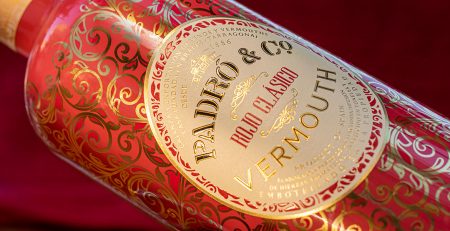Did you know that bitter orange is an essential citrus fruit in vermouth?
Citrus fruits play a major part in our health due to their vitamin, mineral and fibre content. That’s why we thought it was about time we talked about one of the most widely used citrus fruits in vermouth, the bitter orange.
The tree
The bitter orange tree, citrus aurantium, is originally from India and China, although it is also to be found in Spain. In fact, at Padró i Familia we have a citrus orchard for our vermouths containing around 600 trees, a large proportion of which are bitter orange trees. It is a round-cup perennial that can grow to as much as 8m (over 26 feet) and whose flowers are white and have a fabulous scent. It is grown exclusively for use in food products.
The fruit
The bitter orange, as a fruit, is round and slightly flat at each end, with rough peel and bitter-tasting pulp. It is used principally to make marmalade and liqueurs.
Use in vermouth
We use the peel of the orange to make several of our vermouths, both in the Myrrha as well as the Padró & Co. range. We can safely say that it is one of citrus fruits we cannot do without. In order to prepare the bitter orange for use in our vermouths, first we remove the peel very carefully and then we leave it to dry. Once it is dried to just to the right degree, we prepare it so that it can be added to the blend of botanicals that make up our vermouth infusions. Our winemaker, Mario, uses botanicals in very precise quantities so that they blend perfectly with the wine and other ingredients to make well-balanced vermouths.
Use as a remedy
The peel of the orange – which is the part we add to the vermouth infusion – is digestive and venotonic, that is, it strengthens the blood capillaries and improves vein tone in general. So, it’s hardly surprising that it’s used as a cure for vein anomalies such as varicose veins and arteriosclerosis. The fact that it is totally innocuous makes this fruit a good antidote for use during pregnancy to help alleviate circulatory-derived problems, such as swelling in the legs. The essential oil that is made using the flowers of this tree has sedative and antispasmodic effects, whilst the seeds, with their high essential fatty acid content are used to lower cholesterol levels.








